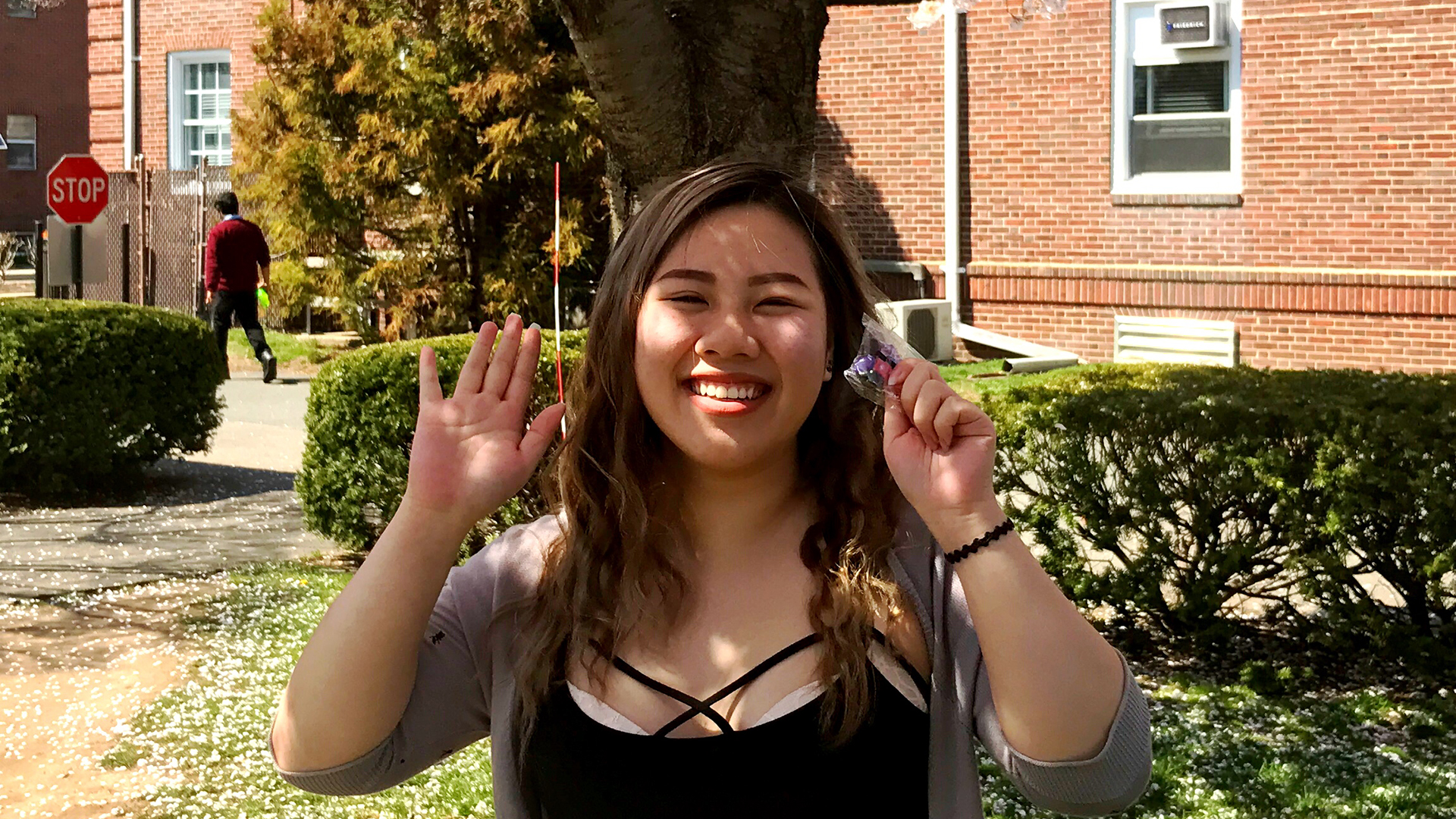Check Out Affordable Schools for Vietnamese Students
Vietnamese students, did you know there are a wide range of budget-friendly universities in the US with tuition under $20,000, plus financial aid and region-specific grants?
Many universities also offer scholarships to help international students pay for their degree programs. Speak to your advisor about scholarships designed specifically for Asian and high-achieving Vietnamese students.
By opting for a budget-friendly university, you can pursue your academic goals and prepare for a successful career while keeping costs low. Check out Shorelight’s affordable universities that are also a great value.
first-time, full-time undergraduates attending private, nonprofit institutions are awarded financial aid
Best Value Schools - Auburn University at Montgomery (U.S. News & World Report)
paid on-campus jobs for students annually - University of Wyoming
of first-time college students enrolled at the University of Central Florida graduate debt-free
Featured Universities
- Auburn University at MontgomeryMontgomery, AlabamaStarting Tuition$20,400Location TypeLarge cityTotal Enrollment5,211RegionSouth
- Trinity Christian CollegePalos Heights, IllinoisAverage Tuition$19,980Location TypeMidsize cityTotal Enrollment985RegionMidwest
- Blackburn CollegeCarlinville, IllinoisAverage Tuition$29,420Location TypeMidsize cityTotal Enrollment414RegionMidwest
- #117 U.S. News RankingUniversity of Central FloridaOrlando, FloridaAverage Tuition$17,000Location TypeLarge cityTotal Enrollment68,571RegionSouth
- Bridgewater CollegeBridgewater, VirginiaAverage Tuition$15,000Location TypeMidsize cityTotal Enrollment1,450RegionNortheast
- University of Wisconsin - SuperiorSuperior, WisconsinAverage Tuition$16,930Location TypeMidsize cityTotal Enrollment2,700RegionMidwest
- Colby Sawyer CollegeNew London, New HampshireAverage Tuition$18,026Location TypeSmall townTotal Enrollment943RegionNortheast
- #222 U.S. News RankingUniversity of WyomingLaramie, WyomingStarting Tuition$22,020Location TypeMidsize cityTotal Enrollment10,814RegionWest
- Utah Tech UniversitySt. George, UtahAverage Tuition$16,835Location TypeLarge cityTotal Enrollment12,266RegionWest
- Washington & Jefferson CollegeWashington, PennsylvaniaAverage Tuition$28,571Location TypeLarge cityTotal Enrollment1,156RegionNortheast
- Carroll UniversityWaukesha, WisconsinAverage Tuition$36,400Location TypeLarge cityTotal Enrollment3,176RegionMidwest

- Compare your matches
- Apply with ease
- Speak with experts
FAQs for Vietnamese Students Looking to Study in the US
What types of programs does Shorelight offer international students?
When you work with a Shorelight counselor, you’ll have access to more than 1,900 bachelor’s degrees offered at universities across the US. Our diverse range of programs accommodate various levels of English proficiency and we also provide robust student support services, all included in your tuition, to ensure you thrive on campus.
What is the deadline to finalize enrollment?
Application and enrollment deadlines vary depending on your preferred university and specific degree program. It’s essential to carefully review all university admissions materials and adhere to specified deadlines. If you are unsure about meeting any deadline, reach out to your advisor.
Which scholarship opportunities are available for international students starting from the first academic year?
International students can explore scholarship opportunities at several Shorelight universities. Awards average $20,000 annually. Connect with your advisor for details on eligibility criteria, application deadlines, and more.
Is it possible for me, as an international student, to participate in sports?
Yes, many universities welcome international students on their sports teams. It’s advisable to reach out to the specific sports department or team coach at your preferred university to inquire about athletics policies and eligibility requirements for international students. They can provide more detailed information about tryouts, participation guidelines, and necessary paperwork.
Are there any cultural integration programs available for international students?
Many universities offer cultural integration programs specifically designed for international students. These programs aim to facilitate cross-cultural understanding, foster connections between international and domestic students, and provide support for adjusting to life in a new country. You can inquire about these programs through your university’s international student services office or cultural affairs department. They can provide details about available activities, events, and resources to enhance your cultural experience while studying abroad.
What is the recommended arrival time for international students on campus?
The recommended arrival time for international students on campus can vary and depends on factors such as orientation schedules, housing availability, and visa requirements. Consult with your advisor for specific guidance regarding your ideal arrival time. Counselors can provide information about orientation dates, housing arrangements, and any pre-arrival requirements you need to fulfill. Additionally, it’s essential to consider factors like travel time and potential delays in transit. Your advisor can make travel itinerary recommendations to ensure an on-time start.
What is the schedule for tuition payment?
The schedule for tuition payment typically varies depending on the university’s policies and the specific program in which you’re enrolled. Universities will provide detailed information about tuition payment deadlines and procedures in their official email correspondence. It’s crucial to review this information carefully and adhere to any deadlines specified to avoid late fees or enrollment holds.
What health insurance choices do I have as an international student?
As an international student, you may have various health insurance options available to you, depending on the policies of your university. Many universities offer comprehensive health insurance plans specifically designed for international students, which often include coverage for medical services, prescriptions, and emergency care. When choosing the plan that best suits your needs, it’s essential to review your university’s health insurance options and consider coverage benefits, premiums, and deductibles. You can typically find information about health insurance options for international students on your university’s website or by contacting the international student services office or health center for guidance.
What does the meal plan cover?
The specifics of what a meal plan covers can vary depending on the university’s dining services and the type of meal plan chosen. Generally, meal plans provide access to on-campus dining facilities, such as cafeterias or dining halls, where students can enjoy a variety of meal options throughout the week. These options may include breakfast, lunch, dinner, and sometimes snacks or grab-and-go items. Some meal plans also offer flexibility in terms of dining locations and times. It’s important to review the details of the meal plan options offered at your university, including any restrictions or limitations, to determine which plan best fits your dietary needs and preferences.
What amenities are provided in the dormitory?
The amenities provided in dormitories can vary depending on the university and the specific dormitory building. However, common amenities typically include furnished living spaces such as beds, desks, and storage units, shared communal areas like kitchens, lounges, and laundry facilities, as well as access to internet connectivity and basic utilities such as electricity, heating, and water. Some dormitories may also offer additional facilities such as fitness centers, study rooms, recreational areas, and on-site dining options. It’s advisable to review the details of the dormitory amenities from your university or housing office for specific information about what is included in your accommodations.






